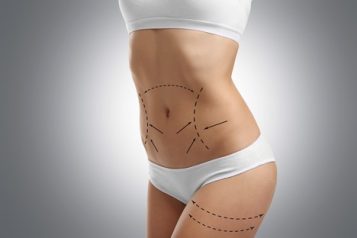
Dr.Capsular Contracture – Will Your Breast Implant Lead to Scar Tissue?
If you have breast implants or have considered getting an augmentation procedure, you may have heard about the risk of capsular contracture. It’s an unfortunate side effect that occurs in a relatively small number of patients and can cause breasts to become hard, painful, and even misshapen.
Although the risk of capsular contracture is fairly low, so is the level of patient awareness on this topic. This leads to several problems.
Firstly, the patient doesn’t know to ask their surgeon about capsular contracture and to discuss these risks before the surgery takes place.
Secondly, patients may shrug off initial symptoms of the problem; causing the issue to advance to a point where surgical intervention is needed.
What is Capsular Contracture?
At the core, capsular contracture is the result of your body’s immune system trying to protect you. Your body responds with inflammation at the surgery site; a process that can lead to scarring around the breast implant.
The scar tissue acts as a ‘capsule’ around the implant – hence the ‘capsular’ in capsular contracture.
What to Look Out For
It’s important to speak to your surgeon if you’ve noticed any kind of movement of the implant, change in breast shape, firmness in the breast, or pain.
Why Capsular Contracture Occurs
When a breast augmentation is performed, bacteria will sometimes make it into the body along with the implant. Surgeons refer to it as a bio-film.
“But aren’t implants sterile?” Yes, they are. But the bacteria can make it onto the implant when it comes in contact with either the patient’s skin or the surgical tools during the procedure.
Preventing Capsular Contracture
When I perform a breast augmentation I like to take extra steps to reduce chances of a bio-film. For example, I put the implant through a bio-wash process, to kill the bacteria right before the implant is introduced into the body.
I also prep the implant site and the Keller Funnel with a triple antibiotic wash. (The Keller Funnel is a tool used in the augmentation process. It comes sterile but I like to put it through the wash anyway right before the implant is inserted.)
Treating Capsular Contracture
If it does occur, there are several treatment options available for treating capsular contracture, depending on how severe the problem is:
- Really minor cases can be treated with medications and implant manipulation.
- Moderate cases may involve partially removing the scar capsule and replacing it with a tissue substitute.
- In severe cases, the solution may require removing the implant and the capsule, and placing a new implant.
The Bottom Line
Like most things in life, capsular contracture after breast augmentation cannot be prevented with 100% certainty. However if you’re considering breast implants, it’s important to discuss the risks with your surgeon and ask about the steps he/she takes to reduce these chances.
If you already have implants and have noticed symptoms like breast firmness or pain, then it’s important to contact your doctor to rule out capsular contracture.
(If you suspect you may have developed capsular contracture and would like a second opinion, please contact Illuminate Plastic Surgery and schedule an appointment with Dr. David Boudreault.)
For more information, visit Dr. Brian A. Levine's social media:

























